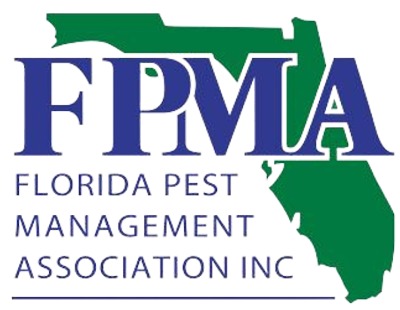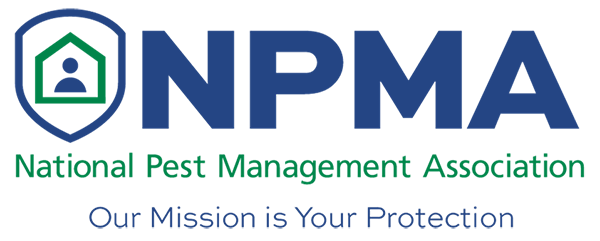
When the temp drops below 60 degrees in Tampa Bay, household pests seek the warmth of your home. Pests such as cockroaches, ticks, and even silverfish can carry microbes that can make your family members sick. From allergic reactions to salmonella infection, household pests carry bacteria, fungi, viruses, parasitic worms, and other human pathogens.
You can protect your family from insect-borne illness by maintaining a winter pest control plan.
Illness Caused by Cockroaches
The number one bug that will cause you to call for pest control service in southwest Florida is the dreaded cockroach. Roaches vomit and defecate on food. Disease is transmitted to humans when we eat food contaminated by roaches. Because cockroaches eat virtually anything, including rotting garbage, spills, crumbs, and fecal matter, their stomachs can harbor as many as 33 types of bacteria. This includes salmonella, e-coli, listeria, staphylococcus, and streptococcus. Certain species of cockroaches can cause allergies, especially in children.
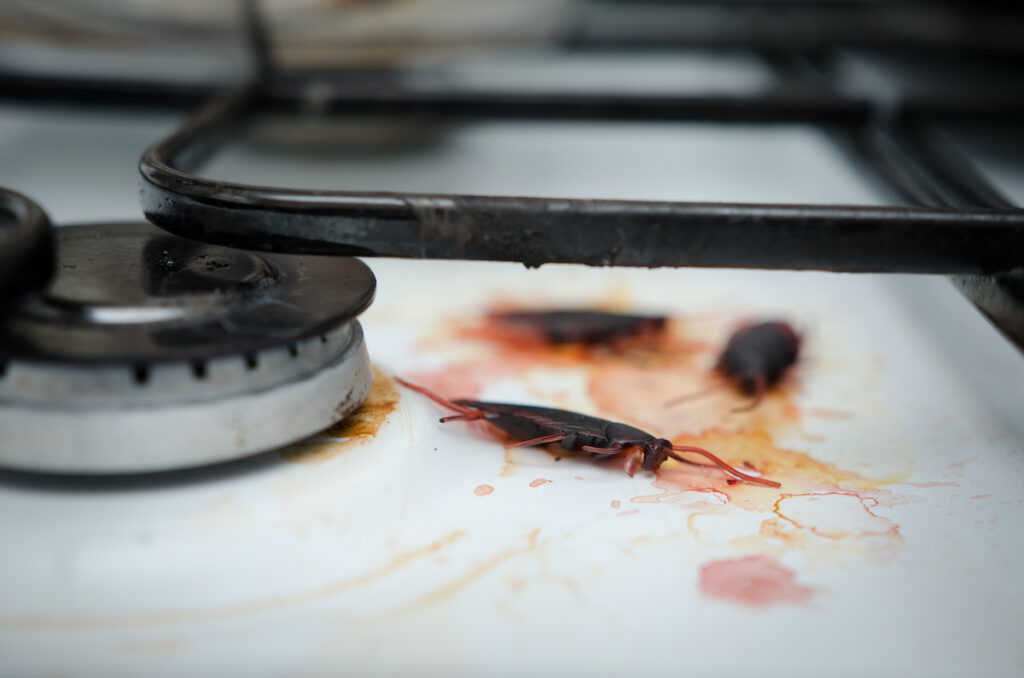
Where Roaches Nest in a Home
Cockroaches are cold-blooded, which is why they are drawn into a cozy, warm home in winter. Some species prefer the comfort of certain rooms in your house:
- German, Asian and brown-banded cockroaches are small roaches that hide in dark, sheltered places such as attics, storerooms, kitchens and bathrooms during the day and come out at night to feed. These roaches are found under sinks or drain boards, in cabinets and cupboards, behind drawers, around pipes, and around windows and doorframes.
- The large Florida wood roach and the American, Australian, and brown roaches, (aka palmetto bugs) are known for making people jump as they erratically scurry across the floor. Though these big roaches prefer to be outdoors, they will come inside looking for a food source to carry out.
Can roaches transmit the novel coronavirus?
Research to-date indicates coronavirus transmission requires a biological carrier such as saliva, fecal matter, or direct contact with virus-contaminated surfaces including the hands, eyes, nose, and mouth. While there isn’t any concrete evidence for cockroaches transmitting the virus that causes COVID-19, pest control in private and public spaces has always been a crucial part of prevention and control of any virus, and this includes eliminating possible transmission vectors such as cockroaches.

Keep Roaches Out of Your Home
- Clean-up crumbs and spills immediately, so you can avoid attracting these disease-carrying insects in the first place.
- Make sure the foods in your pantry are stored in seal tight bags and containers.
- Don’t leave food out, including pet food.
- Seal cracks and gaps in walls, floors and openings around or inside cabinets. Also, seal gaps around plumbing, wall outlets, and switch plates.
- Have a spare bath? Run water periodically in the shower and sink to flush out build-up that and any pests residing in drains.
- Scan children’s backpacks when they return home, as well as grocery items before storing them.
If your Florida home gets infiltrated by cockroaches this winter, partner with Drive-Bye Exterminators to assess your roach problem and develop a thorough eradication and prevention plan.
Sneaky Silverfish
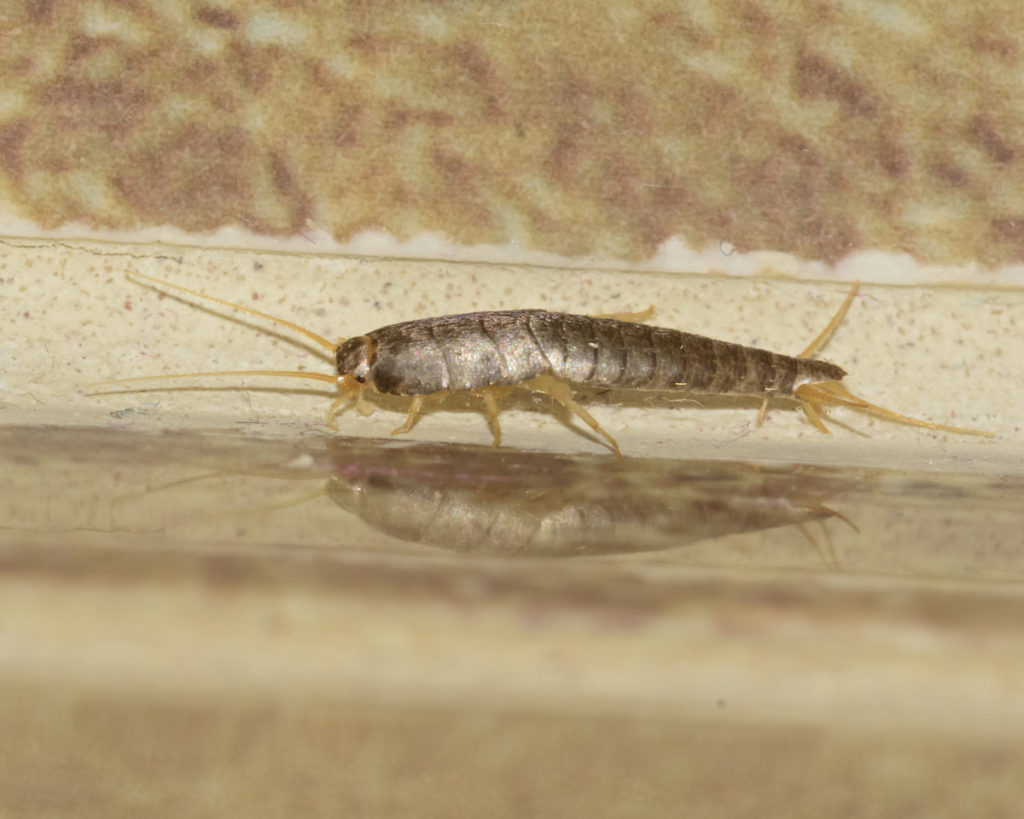
While silverfish are not known to carry disease the way roaches do, if they get into your food storage or prep areas, they can present a contamination danger. Silverfish travel through trash and stagnant water that can contain harmful bacteria, which they carry as they walk across surfaces in your home.
Where Silverfish Hide in a Home
Masters at hiding (until you pull out a wine glass for a guest and find one sitting in it), these insidious creatures thrive in high-humidity environments. So, it’s no surprise even a Florida winter drives silverfish inside to seek water and warmth.
They sneak in through gaps in window frames or cracks in the foundation. Silverfish settle into areas such as kitchen counter corners, trash bins, drawers, and food storage areas as well as nooks and crannies in the bathroom.
Tiny and slim as they are, silverfish have a voracious appetite, especially for starches. This includes foods such as grains, flour, and cereal as well as fabric, paper, photos, and books. They will dive into your office supplies and anywhere you store cardboard boxes.
If you suspect an infestation of silverfish, it is quite difficult to get rid of them on you own. Our extermination professionals have expertise in eradicating silverfish.
Disease-carrying Ticks
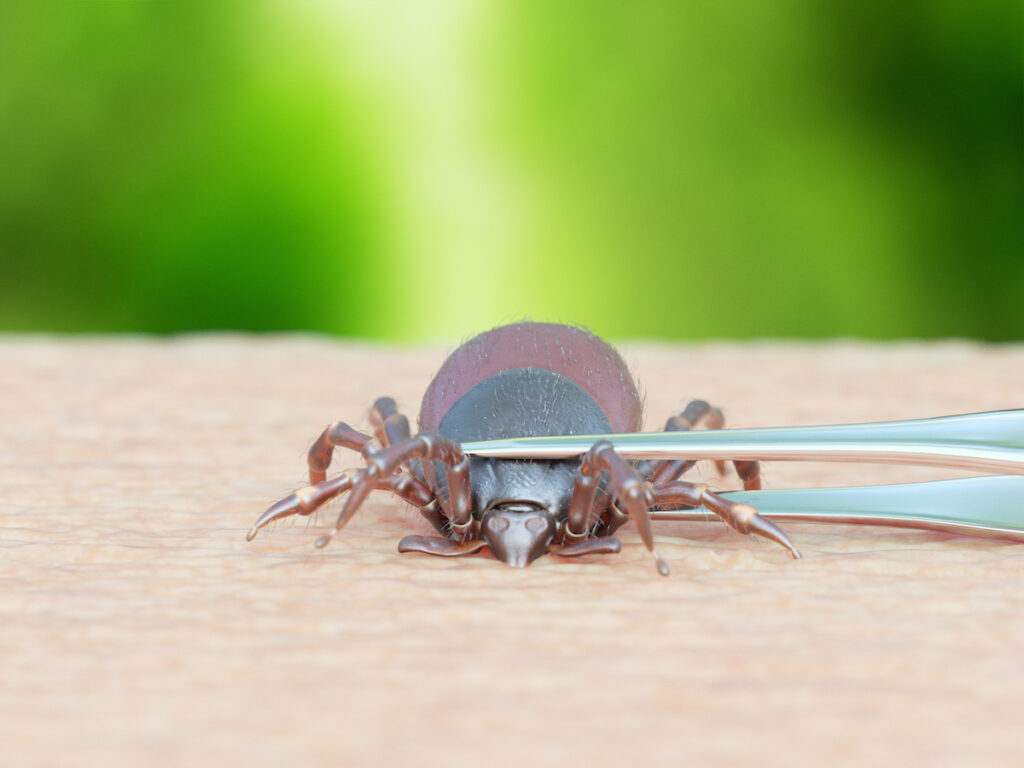
Though not as active in winter, even in Florida, these blood-sucking pests are commonly brought into the home when you move plants indoors to avoid frost. For people and pets, tick bites can be painful, or unnoticeable until infection sets in. Three types of tick are known to carry serious diseases:
- The Brown (Dog) Tick can infest indoors. Though they prefer to feed on your canine companion, they will happily chow down on a human host. The disease these ticks transmit is Rocky Mountain Spotted Fever as well as a few canine-specific illnesses contractible only by dogs. A little-known fact about the brown tick is that once inside, they can lay eggs within cracks and crevices around the house.
- The Lone Star Tick has a silvery dot on the back of the female only. The body is reddish-brown in color but turns gray when engorged. They lie in wait for a host in shady areas with low vegetation. They can prey upon small birds (including pets) as well as large mammals. These ticks transmit Southern Tick-Associated Rash Illness (STARi), tularemia, Heartland virus, and Bourbon virus.
- The Blacklegged “Deer” Tick is the main carrier of Lyme disease. They also transmit anaplasmosis and a form of encephalitis. Deer ticks hide in areas where a lawn meets a tree line as well as in grasses and the nests of other animals. Because they start feeding in mice, they can pick-up and transmit whatever pathogens mice can carry.
Ways to Prevent Bringing Ticks into Your Home
- Carefully inspect outdoor plants before bringing them inside.
- Check your household pets weekly for tick bites.
- If you are active in areas known for ticks, remove your clothing in the garage or mud-room before walking through the house and wash in hot water, immediately.
- Scan your skin for any signs of bites.
- If bites are found, seek the proper veterinary or personal medical care.
If you suspect a family member or a pet has been exposed to ticks, contact a pet control professional to assess your home for eggs.
At Drive-Bye Exterminators, we’ve built our award-winning Tampa Bay pest control company by serving our customers with honesty, excellence, and dependability. Call us today for a free pest control estimate. We also offer special rates for Active Duty and Retired Military.




